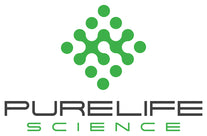Rancidity and Fish Oil: The Benefits of Plant-Based Alternatives

The Fifth Estate (watch video below or click here) took aim at the supplement industry makes several claims about the actual composition of supplements and about the discrepancies between the ingredients listed on the label and those actually included in the supplement. They additionally state that fish oils on the market are rancid, and remarked on the ineffectiveness of the regulatory environment. The industry has responded (“Supplements: Company Statements”, 2015) with fairly convincing evidence to prove that the laboratory used by the CBC did not follow standard protocols when doing measurements. Additionally, after submitting the same batches tested by the CBC to independent laboratories for analysis, these labs proved that the labeling was correct, had the correct amounts, and were within guidelines for rancidity. A more in depth look by its companion show, Marketplace (“Supplements: What happened with our investigation”, 2016), was pulled at the last minute due to the “new” information.
One of the issues in particular I wish to concentrate on is the rancidity of fish oil, called peroxidation (“Liquid peroxidation”, 2018), which is an issue I have been trying to inform the public and the athletic community about for years. Nevertheless, what follows is a fact based argument about why fish oil is a problem and plant-based equivalents are not only safer, but are more in keeping with human physiology.
The Evidence on Rancid Fish Oil SupplementsThe Fifth Estate conducted a study of seven of the top selling fish oil supplements and found that only four were adequate according to both industry self regulating guidelines and to Health Canada’s guidelines). Consider this article, from the UN National Library of Medicine National Institutes of Health (NCBI) (Gonzalez, Gray, Schemmel, Duggan, & Welsch, 1992). In this study, mice were fed freshly squeezed fish oil that was between 0-72 hours old. In addition to varying amounts of BHT, an antioxidant and preservative commonly added to many foods we consume, the mice still had peroxidation products (i.e. oxidized fish oil) accumulate in their tissues. Peroxidation products are quite harmful to humans. It affects function at the cellular level and results in premature aging.
A review of the largest and most well done fish oil population studies (Rizos, Ntzani, Bika, Kostapanos, & Elisaf, 2012) and NCBI (Kwak, Myung, Lee, & Seo, 2012) showed that there was no cardiovascular or other benefit to the administration of fish oil to large segments of the human population. In fact, of the 15,000 or so studies on fish oil, about half are neutral or negative and half mildly positive.
Plant-Based vs. Fish Oil Supplements
There has been an extremely common misperception that a skewed ratio of Omega-6 to Omega-3 has led to the increase of chronic disease in the population to date. There is no biochemical or physiological evidence to support this claim. In fact, it is the processing of oils that cause rancidity of both the Omega-3 and Omega-6 components of the oil that cause the problems.
Regulatory Environment of Supplements
The show raised some concerns of a regulatory nature. We at Pure Form Omega, having gone through the approval process in Canada, know that the process was neither fast nor easy. Multiple testing was done to ensure the ingredients that are listed on the label are actually in the product, as well as rancidity testing to confirm that the “best before” date was legitimate. Every batch undergoes the same, rigid testing before being released for sale. The concerns raised in the article do not reflect my personal experience, so I cannot comment further.
Conclusion
The advantage of using non-processed, plant-based essential fatty acids has a deep scientific validity and great implications for human health. It improves oxygenation of every cell and enables efficient production of energy from mitochondria. This will lead to increased athletic performance, decreased recovery time, and overall improved health and state of mind.
REFERENCES
Gonzalez, M., Gray, J., Schemmel, R. Dugan, L., Welsch, C. (1992). “Lipid peroxidation products are elevated in fish oil diets even in the presence of added antioxidants,” The Journal of Nutrition, 122 (11), 2190-5. doi:10.1093/jn/122.11.2190
Kwak, S., Myung, S., Lee, Y., Seo, H. (2012). “Efficacy of omega-3 fatty acid supplements (eicosapentaenoic acid and docosahexaenoic acid) in the secondary prevention of cardiovascular disease: a meta-analysis of randomized, double-blind, placebo-controlled trials,” Archives of Internal Medicine, 172(9), 686-94. doi: 10.1001/archinternmed.2012.262
“Liquid peroxidation”. (2018). Retrieved from https://en.wikipedia.org/wiki/Lipid_peroxidation
Rizos, E., Ntzani, E., Bika, E., Kostapanos, M., Elisaf, M. (2012). “Association between omega-3 fatty acid supplementation and risk of major cardiovascular disease events: a systematic review and meta-analysis,” JAMA, 308(10), 1024-33. doi: 10.1001/2012.jama.11374
“Supplements: Company Statements”. (2015). Retrieved from https://www.cbc.ca/marketplace/blog/supplements-company-statements
“Supplements: What happened with our investigation”. (2016). Retrieved from https://www.cbc.ca/marketplace/episodes/2015-2016/supplements
"Vitamins and Supplements: Magic Pills". (2015). Retrieved from https://www.cbc.ca/fifth/episodes/2015-2016/vitamins-and-supplements-magic-pills
